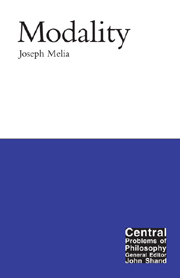5 - Extreme realism
Summary
Realism about possible worlds: methodological preliminaries
We now turn our attention to those metaphysicians who take the picture of possible worlds seriously and who think that possible worlds model theory does, in some sense, correspond to the modal facts about the world and that possible worlds should be used in the analysis of our everyday modal claims.
How can we assess different realisms about possible worlds? What criteria should guide us in our theory choice? There are two main presuppositions that underpin the possible worlds debate. These presuppositions should not be seen as unique to the debate in modality. Rather, they have lain behind the resurgence of metaphysics that has been seen in philosophy over the past 50 years.
With some exceptions, most of our pre-theoretic modal beliefs do not have a quantificational form. Although the modalist found certain modal sentences, such as “There could have been more things than there actually are” and modalized comparatives problematic, expressing these thoughts in English does not require explicit quantification or reference to possible worlds. Moreover, even if we accept that model theory does truly represent the kinds of states of affairs that make modal sentences true, or that modal sentences are to be formulated by quantification and reference to possible worlds, we say almost nothing about the nature of these worlds. Accepting the biconditional “◊P iff there is a possible world w such that, at w, P” commits us to an ontology of possible worlds (provided, of course, we accept there are some truths of the form ◊P), but tells us very little about what these worlds are like.
- Type
- Chapter
- Information
- Modality , pp. 99 - 122Publisher: Acumen PublishingPrint publication year: 2003

